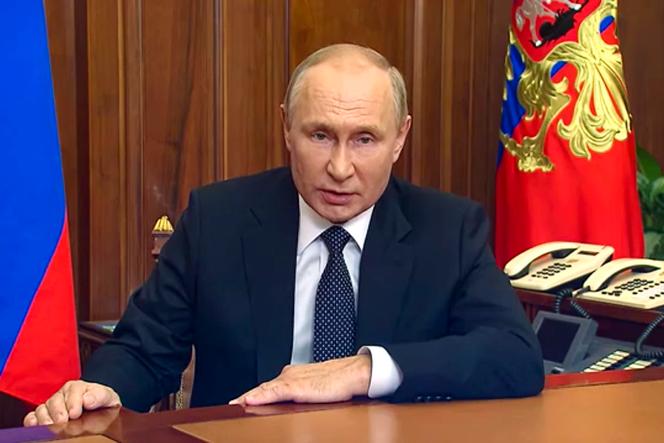Putin Condemns Western Plans to Use Frozen Russian Assets for Ukraine Loans as 'Theft'

Putin Condemns Western Plans to Use Frozen Russian Assets for Ukraine Loans as ‘Theft’
In a sharply worded condemnation, Russian President Vladimir Putin has criticized Western intentions to utilize frozen Russian assets to provide loans to Ukraine, labeling the move as outright theft. His comments, delivered during a meeting with foreign ministry officials, come amidst escalating tensions over the handling of international assets and aid provision amid the Ukraine crisis.
The backdrop to Putin’s rebuke is the recent decision by the Group of Seven (G7) nations to mobilize a substantial $50 billion aid package for Ukraine, leveraging assets seized from Russian entities. This agreement among the world’s major industrial democracies, announced just days ago, has stirred geopolitical strife and raised significant questions about the control and sovereignty of assets held in Western jurisdictions.
Putin, in his address, warned that such actions set a perilous precedent in international relations. He emphasized that permitting the use of frozen assets in this manner could potentially open the door for any country to face similar asset freezes in the future, thereby undermining the sanctity of property rights on a global scale.
”The unilateral decision to redirect frozen Russian assets for loans to Ukraine is nothing short of theft under international law,” Putin asserted, according to sources present at the meeting. He underscored the importance of adhering to established norms and treaties governing the handling of frozen assets, stressing that any deviation from these norms threatens to erode trust and stability in international financial systems.
The G7’s move to tap into frozen Russian assets marks a significant escalation in the economic measures imposed on Russia in response to its military actions in Ukraine. Since the outbreak of conflict, Western nations have imposed wide-ranging sanctions aimed at pressuring Moscow to withdraw its forces from Ukrainian territory and pursue a diplomatic resolution to the crisis.
The utilization of frozen assets to fund Ukraine’s defense and reconstruction efforts has been defended by Western leaders as a necessary step to bolster Ukraine’s resilience and support its sovereignty amid ongoing military threats. However, Russia’s vehement opposition underscores the deepening divide and mutual distrust between Moscow and Western capitals.
The situation surrounding the frozen assets has underscored the vulnerability of financial assets held under Western jurisdictions during geopolitical tensions. It has also prompted a broader reassessment of the rules governing the international financial system and the balance between national sovereignty and global economic governance.
As tensions continue to escalate, the international community faces a critical juncture in managing the Ukraine crisis and its broader implications. The divergent approaches between Russia and Western nations on the handling of frozen assets reflect contrasting geopolitical strategies and priorities, with potential ramifications for global financial stability and diplomatic relations.